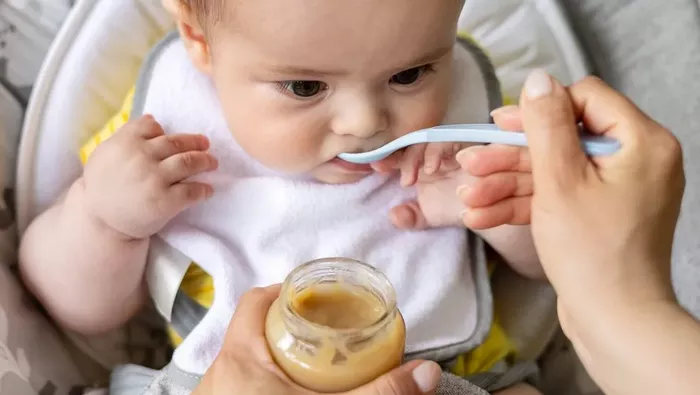Researchers from King’s College London propose that introducing smooth peanut butter to babies and continuing its consumption throughout early childhood could offer lifelong protection against peanut allergies.
According to their findings, teenagers who regularly consumed peanut butter up to the age of five were 71% less likely to develop a peanut allergy compared to those who avoided it.
The team recommends parents to incorporate peanut butter into their child’s diet during the weaning process and continue offering it in substantial amounts until the age of five. However, they caution against giving whole or chopped peanuts to children under five due to the risk of choking.
While the notion of feeding peanut butter to young children may contradict past advice, which suggested avoiding peanuts altogether until age three, the prevalence of peanut allergies is on the rise, affecting approximately one in 50 children. This increase has led to the banning of peanuts in many schools.
Contrary to previous beliefs, the research suggests that early exposure to peanuts is crucial for the immune system to differentiate between harmless substances and potential threats. Peanut allergies occur when the immune system mistakenly identifies peanuts as harmful, leading to severe reactions.
The study, published in NEJM Evidence, followed 640 children at high risk of peanut allergies, half of whom were introduced to peanut products in their diet from four months old until five years old. The results revealed a significant reduction in peanut allergies among children who consumed peanut butter regularly during this period, with the protective effect lasting into adolescence regardless of whether peanut consumption continued.
Professor Gideon Lack, from King’s College London, expressed his satisfaction with the study’s findings, emphasizing that the intervention could have a substantial impact on reducing peanut allergies in future generations.
The recommended approach involves introducing a soft paste of peanut butter or peanut puffs to babies once they demonstrate readiness for solid foods, typically around the time they can sit independently, coordinate their movements, and swallow food effectively. The suggested frequency is three to four times a week, amounting to approximately one-and-a-half to two tablespoons of peanut butter per week.
Starting this regimen as early as four months old, before food allergies typically emerge, is advisable. However, the UK’s National Health Service (NHS) recommends introducing peanut butter at six months old, while the World Health Organization (WHO) advocates for exclusive breastfeeding for the first six months.
It remains uncertain whether children need to consume peanut products for the full five years to minimize allergy risk, but Prof Lack suggests this approach as a precautionary measure, as peanuts are considered a normal and nutritious food.
The research team estimates that globally, 100,000 cases of peanut allergy could be prevented annually through early introduction strategies.
The study was funded by the US’s National Institute of Allergy and Infectious Diseases, whose director, Dr. Jeanne Marrazzo, underscored the importance of following established guidelines for introducing peanut products to infants, emphasizing the lasting protection it can provide against peanut allergies.


